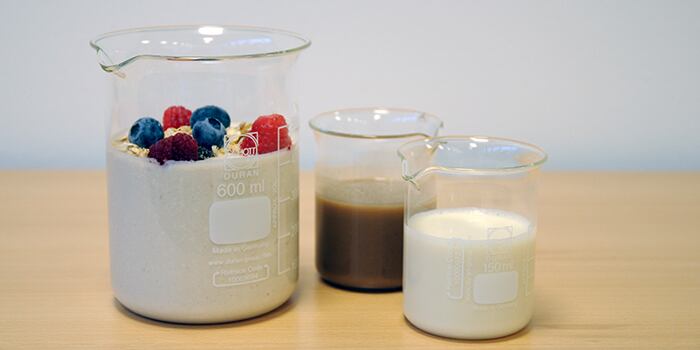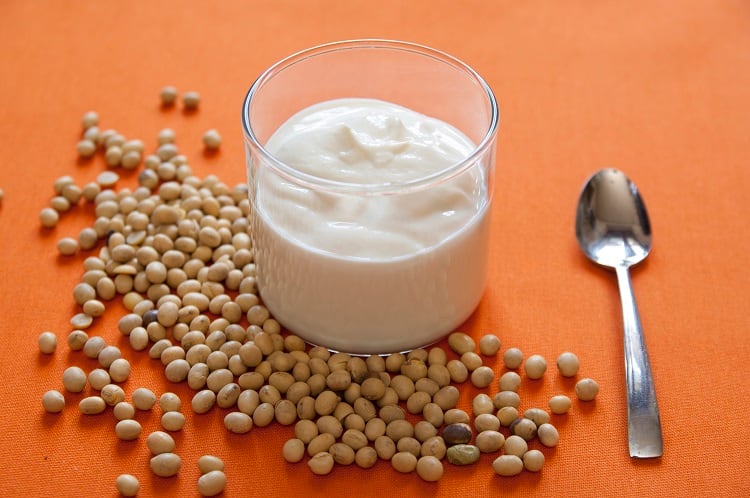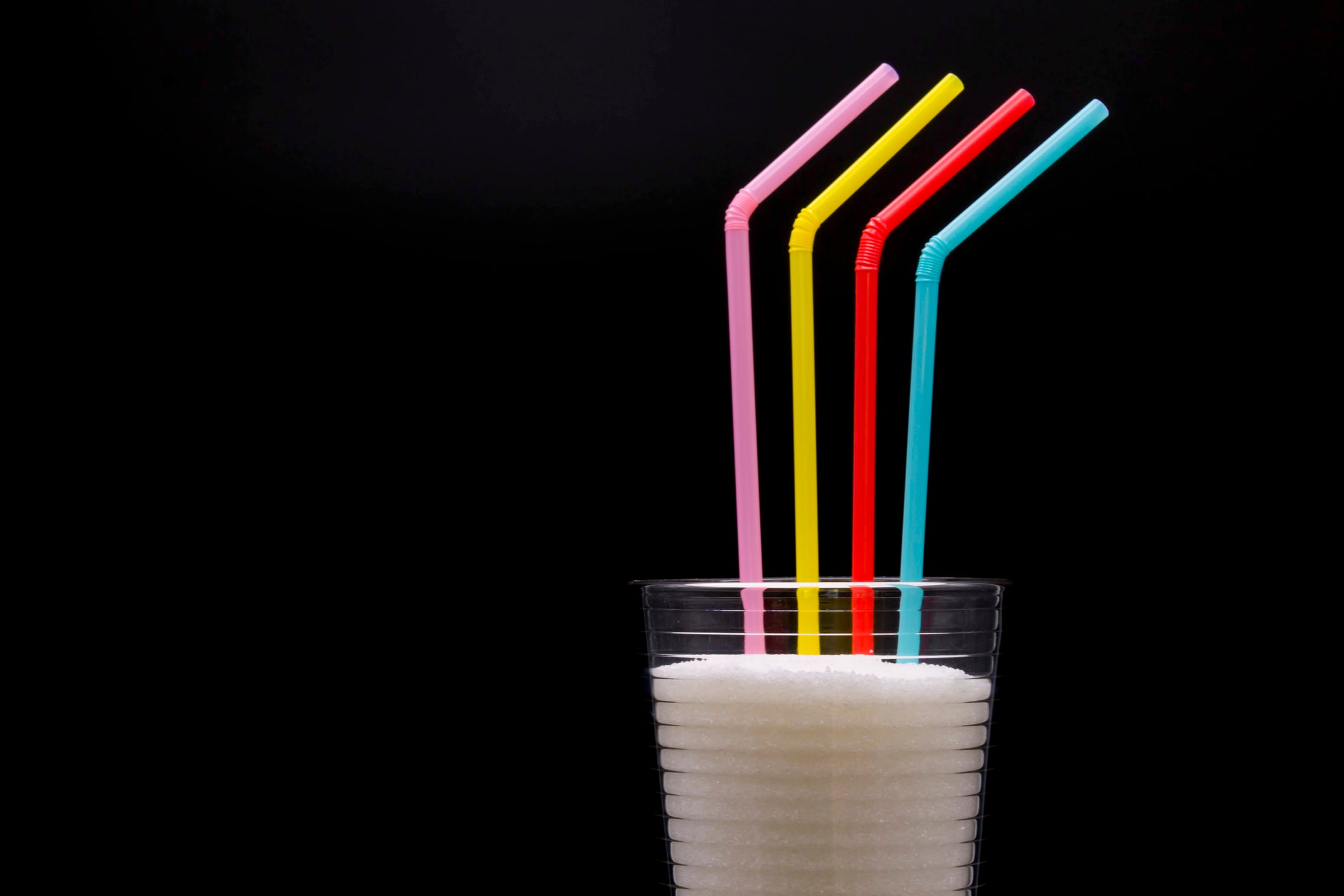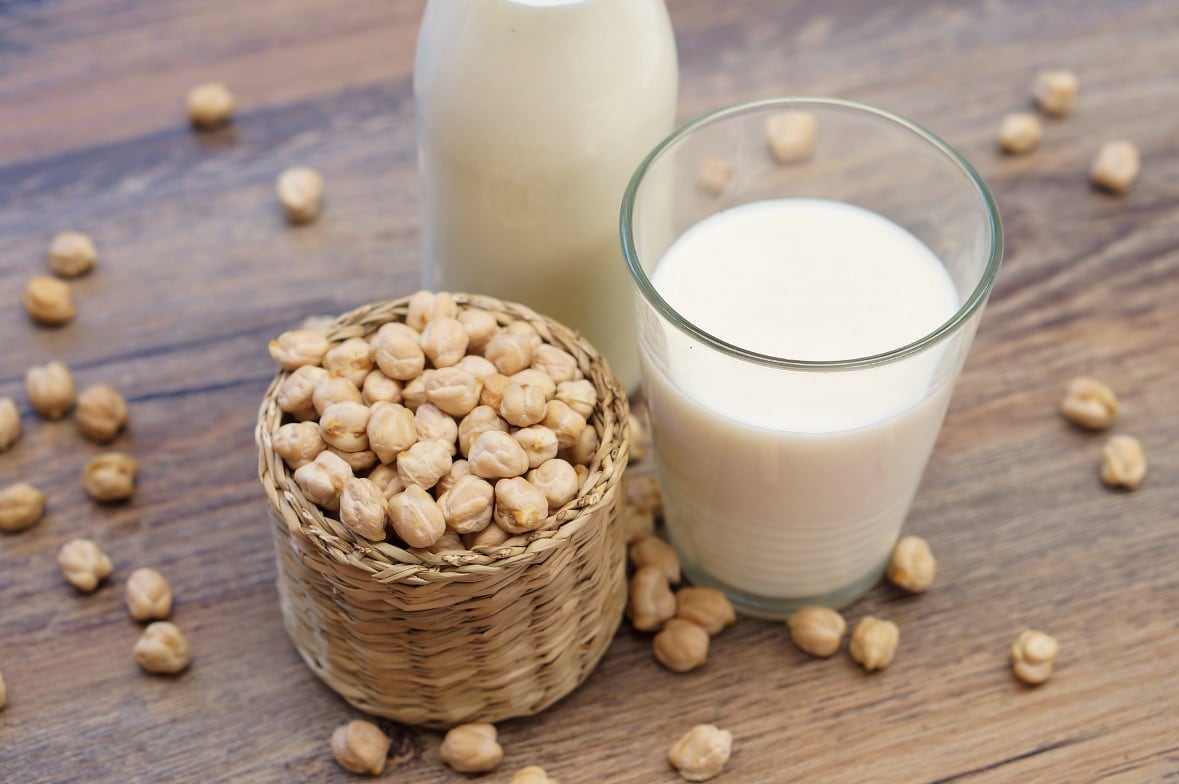The dairy alternatives sector is growing fast. According to analyst MarketWatch, the market was valued at $7.15bn (€6.42bn) in 2016 and is predicted to reach $18.89bn by 2025.
While the sector is largely made up of animal milk substitutes, made from soy, coconut, rice, and oat, other categories are also on the rise. These include cheese, ice cream, and yogurt.
To date, plant-based yogurts have been made using starter cultures developed for use in dairy products. However, according to researchers from the Technical University of Denmark (DTU), these starter cultures require additional ingredients.
“In order for the bacteria from the starter culture to grow sufficiently to acidify the plant-based product, and to create pleasant aromas, they need to add sugar.
“In addition to the added sugar, the manufacturers use other ingredients to give the product desired consistency and taste, making the ingredients list longer,” noted DTU.
Now, a research team led by senior researcher Claus Heiner Bang-Berthelsen from the university’s National Food Institute, has discovered a way to make plant-based ‘yogurt’ with as few ingredients as possible.
Three ingredients: soy, bacteria, and brewer’s spent grain
DTU carried out the project with a grant from the EU Innovation Fund Climate-KIC, and in collaboration with industry partners Carlsberg, Naturli’ and Novozymes.

The researchers sought to replace starter cultures developed for use in dairy with bacteria from the plant kingdom, arguing that such bacteria are ‘optimised’ to break down sugar into plant material.
Along with university students, the researchers hunted in fields and forests for samples of different plant material. Once back in the lab, they looked for lactic acid bacteria that could work as a starter culture in plant-based ‘yogurt’.
“All lactic acid bacteria [were] collected from plant materials around Denmark by the researchers involved and students from DTU,” confirmed Bang-Berthelsen.
“We collected the plant material in media that enriches lactic acid bacteria. Then we transferred it to selective agar plates. The strains were then identified by Maldi-TOF mass spectrometry and characterised by full genome sequencing as well as numerous bioassays for safety and functionality, before selecting the optimal strains for our starter cultures.”
“To our best knowledge, this is the first plant-based ‘yogurt’ fermented using lactic acid bacteria from plants.” – DTU senior researcher Claus Heiner Bang-Berthelsen
The selected strains successfully acidified a soy beverage to create a texture reminiscent of a conventional yogurt product.
Upcycling beer production waste
The third ingredient, alongside soy drink and lactic acid bacteria, is brewer’s spent grain (BSG). BSG is the main by-product of the beer brewing industry, with approximately 42 million tonnes of spent
barley discarded around the world every year.
By adding BSG to the plant-based ‘yogurt’, the researchers said they can increase fibre content, while making the final product more sustainable.
“Depending on how much is used in the production, the [BSG] can also give the final product a different aroma, which can help mask unwanted flavour from the soy,” noted DTU.
The resulting product presents ‘grainy notes’ from the BSG, but a mouthfeel and texture similar to that of conventional yogurt, Bang-Berthelsen told FoodNavigator. Concerning appearance, the researcher said the product is ‘a bit more brown’ than conventional counterparts.
When asked whether the plant-based ‘yogurt’ can be easily scaled for market, Bang-Berthelsen confirmed the same bacteria strains can be used to reproduce the product. “In the future, it can easily be produced in commercial quantities and this can maybe be done in collaboration with our Climate-KIC project partners Naturli’, Carlsberg, and Novozymes.”





